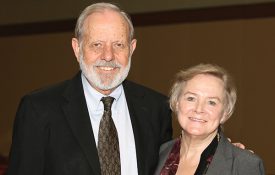-
Minding Education
Findings and concepts in psychological science can spark not only educational innovation, but new ways to assess whether specific teaching methods are effective, APS Fellow Stephen M. Kosslyn says in a guest column.
-

Desirable Difficulties
Most students try to make studying and learning as easy and efficient as possible. But research by APS James McKeen Cattell Fellows Elizabeth L. Bjork and Robert A. Bjork shows that many commonly used learning strategies actually are counterproductive.
-

Why We Fall Prey to Misinformation
Even when we know better, we often rely on inaccurate or misleading information to make future decisions. A review of scientific research explores the reasons why.
-
Memory Athletes and Researchers Collaborate to Dissect Feats of Memory
Some of us have a gift for memorization and recall — think Sherlock Holmes. The fictional Holmes was portrayed as having a natural gift, but others train their memories using mnemonic techniques. Although the general
-
Gazzaniga Receives APS Lifetime Achievement Award
APS Past President Michael S. Gazzaniga has been named a 2015 William James Fellow Award recipient for lifetime contributions to basic psychological science for his innovative experiments with split-brain patients, which revolutionized the understanding of
-
Mining the Unconscious
The sentences that you are reading are in plain English. They are short. They contain simple words. And yet, while you read them you entertain no other thought or feeling (unless your mind is wandering).

